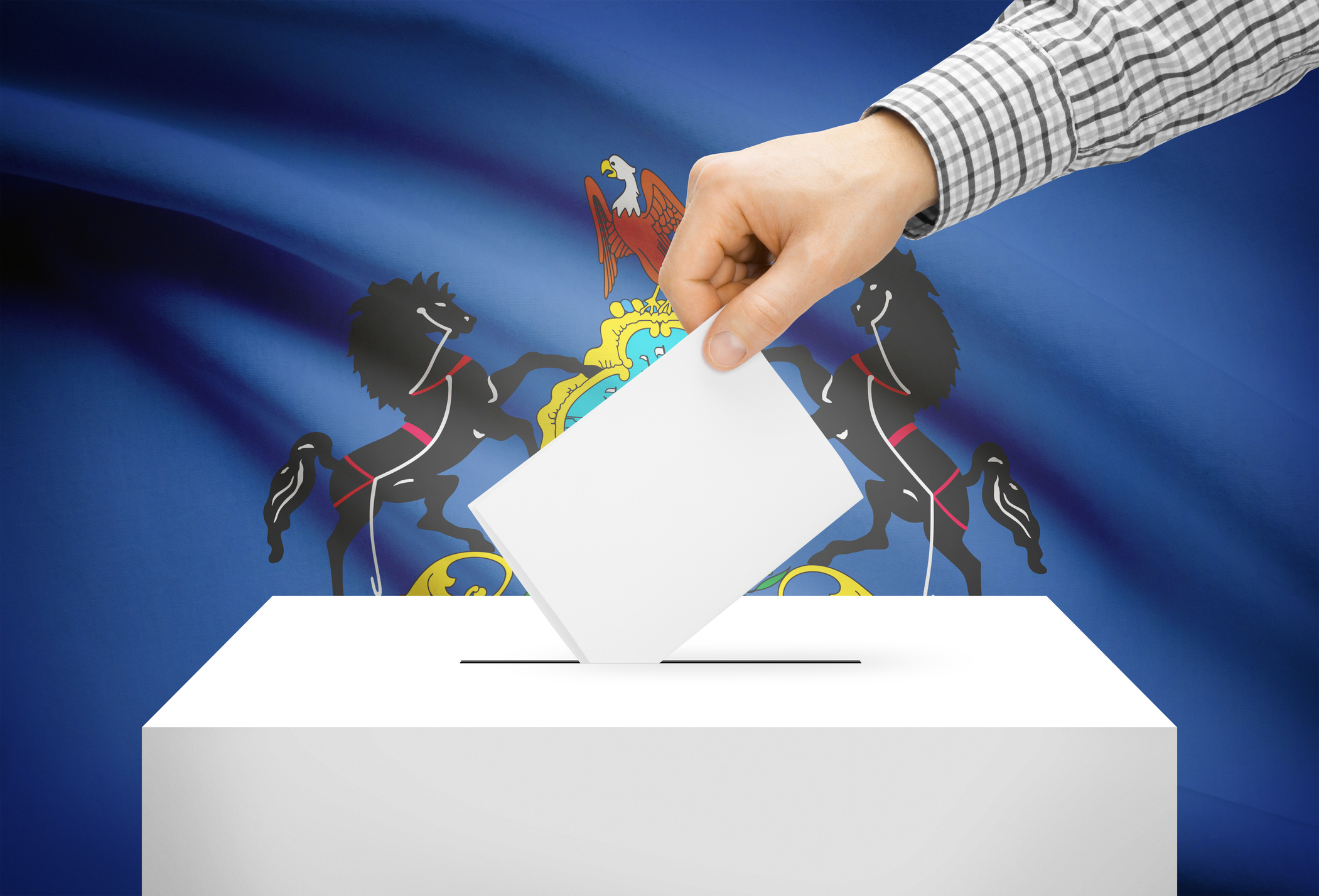
In the middle of the 2020 General Election, millions of voters have already cast ballots by mail, and millions more are making plans to vote in person on Election Day. However, not all Americans are eligible to cast a ballot. According to the ACLU, states have disenfranchised 5.85 million Americans with felony convictions, or misdemeanor convictions in some states.
Some states, like Iowa and Kentucky, permanently disenfranchise all people with felony convictions. Other states have myriads of rules, from no disenfranchisement (Maine and Vermont), disenfranchisement of only current prisoners, or disenfranchisement until the completion of a sentence.
Some of these rules have been in place for years, while others are new. Many states are actively reevaluating and reforming laws governing felons and their voting rights.
Kentucky
In December 2019, Kentucky Governor Andy Beshear signed Executive Order 2019-003 to restore civil rights for convicted felons. The Order recognizes that more than 140,000 Kentuckians had completed their sentences for non-violent felonies but remained disenfranchised and unable to vote. Under the Order, the Governor directed the right to vote and the right to hold public office denied by a judgment of conviction and any previous conviction restored to all offenders convicted of crimes under Kentucky state law who have satisfied the terms of their probation, parole, or sentence, exclusive of restitution, fines, and any other court-ordered financial conditions. There are exceptions, including treason, bribery in an election, violent offenses, and assaults, among others. If an individual does not meet the criteria for automatic restoration set by the Governor’s Executive Order, they can still apply for civil rights restoration.
Some voting rights advocates hoped to see lawmakers codify Beshear’s Executive Order. They want to ensure that the franchise for former felons is automatically extended, independent of individual governors’ decisions. Lawmakers introduced Senate Bill 62 in the most recent legislative session, which would amend the state constitution to establish standards for enfranchising former felons. Under the Amendment, the State would not automatically enfranchise those convicted of treason, bribery in an election, a sex offense, a violent offense, or an offense committed against a child. However, any person convicted of any felony that the bill does not covered would not have the right to vote unless they receive an executive pardon.
The State Senate and House committees of jurisdiction advanced Senate Bill 62, but neither body has taken additional action. The original bill would have automatically restored voting rights five years after a felon completed their sentence, but the amended version passed by the Senate leaves it up to lawmakers to determine how to restore voting rights and whether to include a waiting period. If lawmakers had approved the bill, it would have gone to the voters in the upcoming election.
Iowa
In 2019 and 2020, Iowa Governor Kim Reynolds called for a constitutional amendment to restore former felons’ voting rights.
In August, the Governor signed Executive Order No. 7, restoring voting rights and qualification to hold public office to those convicted of an “infamous crime” and who had discharged their sentence on or before August 5, 2020. The Executive Order defined a “discharge of sentence” as the completion of any term of confinement, parole, probation, or other supervised releases for all felony convictions or any special sentence. It is estimated the Order will allow more than 60,000 Iowans to have their votes counted.
Before the Governor signed the Executive Order, state lawmakers sought to address this issue via a constitutional amendment for the second year in a row. Senate Republicans have opposed the proposal, declining to act on the bill and arguing that the Governor’s Executive Order eliminated the need for a constitutional amendment.
Florida
In 2018, Florida voters approved Amendment 4, the Voting Rights Restoration for Felons Initiative. 64.55% voted in favor of the Amendment, with 35.45% voting no. The Amendment stipulated that Florida citizens with felony convictions would have their voting rights restored after completing all terms of their sentence, including parole or probation, and excluding those convicted of murder or sexual offenses. When the Amendment passed, it was estimated that 1.2 million Floridians would regain their ability to vote.
However, Secretary of State Ken Detzner argued that lawmakers should be consulted in implementing the new Amendment. As a result, state lawmakers introduced and passed Senate Bill 7066, signed by Governor Ron DeSantis last summer. The bill echoes the Amendment passed by voters that “A person who has been disqualified from voting based on a felony conviction for an offense other than murder or a felony sexual offense must have such disqualification terminated and his or her voting rights restored according to s. 4, Art. VI of the State Constitution upon the completion of all terms of his or her sentence, including parole or probation.”
However, the bill defined the “completion of all terms of sentence” to including full payment of restitution ordered to a victim by the court as a part of the sentence and full payment of fines or fees ordered by the court as a part of the sentence or that are ordered by the court as a condition of any form of supervision, such as probation or parole.
Consequently, the Tampa Bay Times recently found that the state had only restored 31,400 people with felony convictions to voter rolls since the Amendment took effect, far lower than expected. The Times also found that as many as 78% of those with felony convictions might be ineligible due to owing court fees, fines, or restitution.
In a Kafkaesque twist, because Florida does not maintain a central database of court fines and fees, it is difficult or impossible to establish how much anyone owes. As of May, the state had failed to process any of the more than 85,000 voting registration applications submitted by former felons since Amendment 4 passed in late 2018.
New Jersey
Garden State lawmakers passed A5823 in late 2019. The bill would remove the prohibition on voting by those convicted of indictable offenses on parole or probation. In New Jersey, indictable offenses are crimes of the fourth through the first degree. While those on parole or probation can vote under the bill, those serving a prison sentence would still not be able to vote.
The bill also requires every county registration commissioner to compare voter registration records with criminal conviction records to prevent disenfranchised people from voting and registering to vote. The bill further criminalizes the act of voting while disenfranchised.
Washington, D.C.
The District of Columbia’s City Council passed B23-0825, signed by Mayor Muriel Bowser this summer. This new bill restores the right to vote to those incarcerated. Under the bill, the Department of Corrections must provide a voter registration form, a voter guide, educational materials on the importance of voting, and an absentee ballot, to every qualified elector in their care or custody. The bill could restore the voting rights of up to 4,500 people in the United States capital. The District of Columbia joins Vermont and Maine as the only states that do not disenfranchise incarcerated individuals.
Latest News
Photo credit: iStock.com/JoyImage In the lead-up to the 2024 election, while many Americans focus on who the next U.S. president will be, another significant issue is on the ballot in several states. Nevada, Oregon, Alaska, [...]
Photo credit: iStock.com/Serhej Calka As the curtains close on the Pennsylvania primaries, the outcomes have once again set the stage for what promises to be a dramatic general election. Known for playing an essential role [...]
Photo credit: iStock.com/FORGEM State lawmakers are considering legislation to address individuals driving under the influence. Across most states, the existing blood alcohol concentration (BAC) threshold sits at .08 grams of alcohol per deciliter (g/dL). However, [...]
Photo credit: iStock.com/Arkadiusz Warguła As artificial intelligence (AI) grows in prominence and uses, lawmakers around the country are taking notice. Some lawmakers want to crack down on using artificial intelligence—and deep fakes—in campaigns. Deepfakes are [...]






Stay In Touch